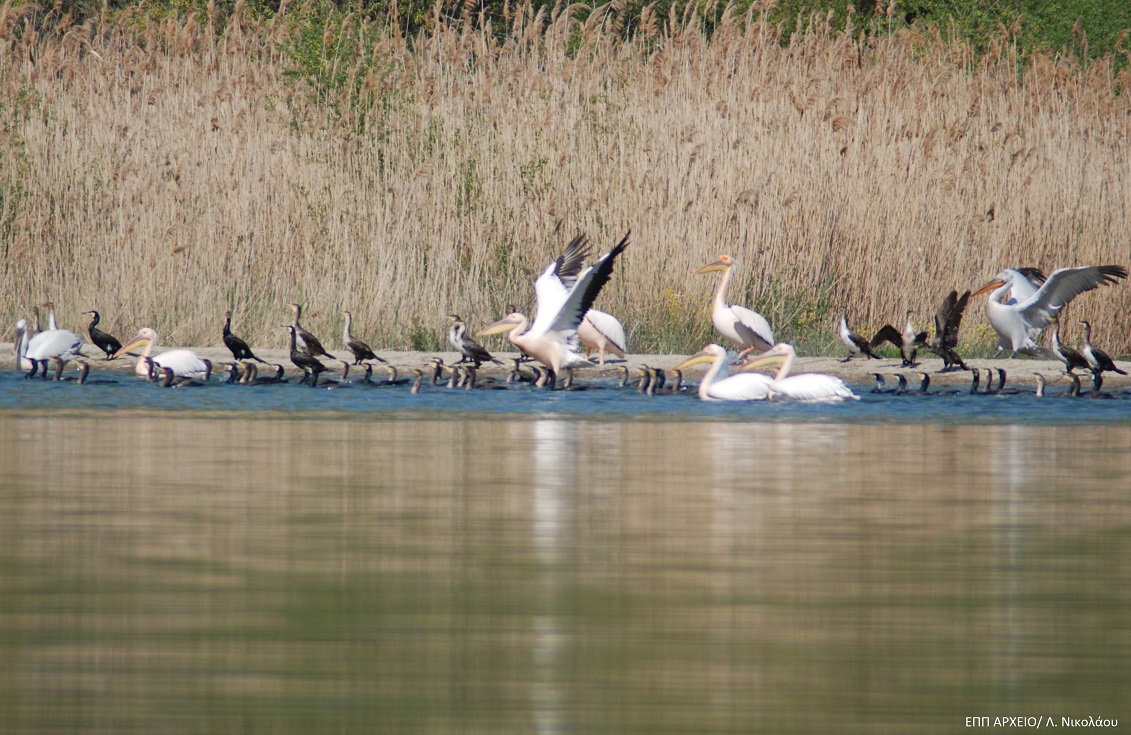The first nationwide census of pelicans was held successfully in 30 wetlands in the country. This action was an initiative of the Hellenic Ornithological Society (HOS) and the Society of the Protection of Prespa (SPP) and involved the inventory of the two species of pelicans: the globally endangered Dalmatian Pelican (Pelecanus Crispus) and White Pelican (Pelecanus Onocrotalus), species present and nest in Greece.
The census was done in collaboration with ten of Protected Areas Management Organizations: M.O in the Evros Delta, M.O in Nestos Delta, Bistonida-Ismarida, M.O Koronia-Bolbis Lakes, M.O Kerkini’s Lake, M.O Axios- Loudias-Aliakmona’s Delta, M.O of Prespa’s National Park, M.O of Pamvotida’s Lake, M.O of Karla- Mavrovounio – Kefalovrysou – Velestinou, M.O of Ambracian wetlands, M.O of Kotyxiou-Strofylias wetlands, M.O of Messolongi Lagoon. Overall, in the recording were involved more than 40 people, members of Organizations Management, members of two NGOs and observers volunteers.
The aim of the census was to measure the total number of pelicans using the Wetlands of Greece during the breeding season. The data obtained contribute to the planning of protective measures, conservation and management of pelicans in the country, which is especially important in the case of Dalmatian Pelican. It is a kind of international interest for which Greece carries great responsibility, as it hosts at the Little Prespa lake the largest colony of its kind in the world (about 1200 pairs) and nationally more than 25% of world population.

From the first Nationwide Census Pelicans became the imperative for integrated protection and proper management of all wetlands in the country, these highly productive and rich in biodiversity ecosystems that provide numerous goods and services to humans.
All the stakeholders organizations and NGOs look to repeat the census the subsequent years.
Marianna Vlassis, Head of Communications and Fundraising, Society for the Protection of Prespa, 6947692357.
Roula Trigou, Coordinator of Public Awareness Conservation Actions, Greek Ornithological Society, 2108227937.



